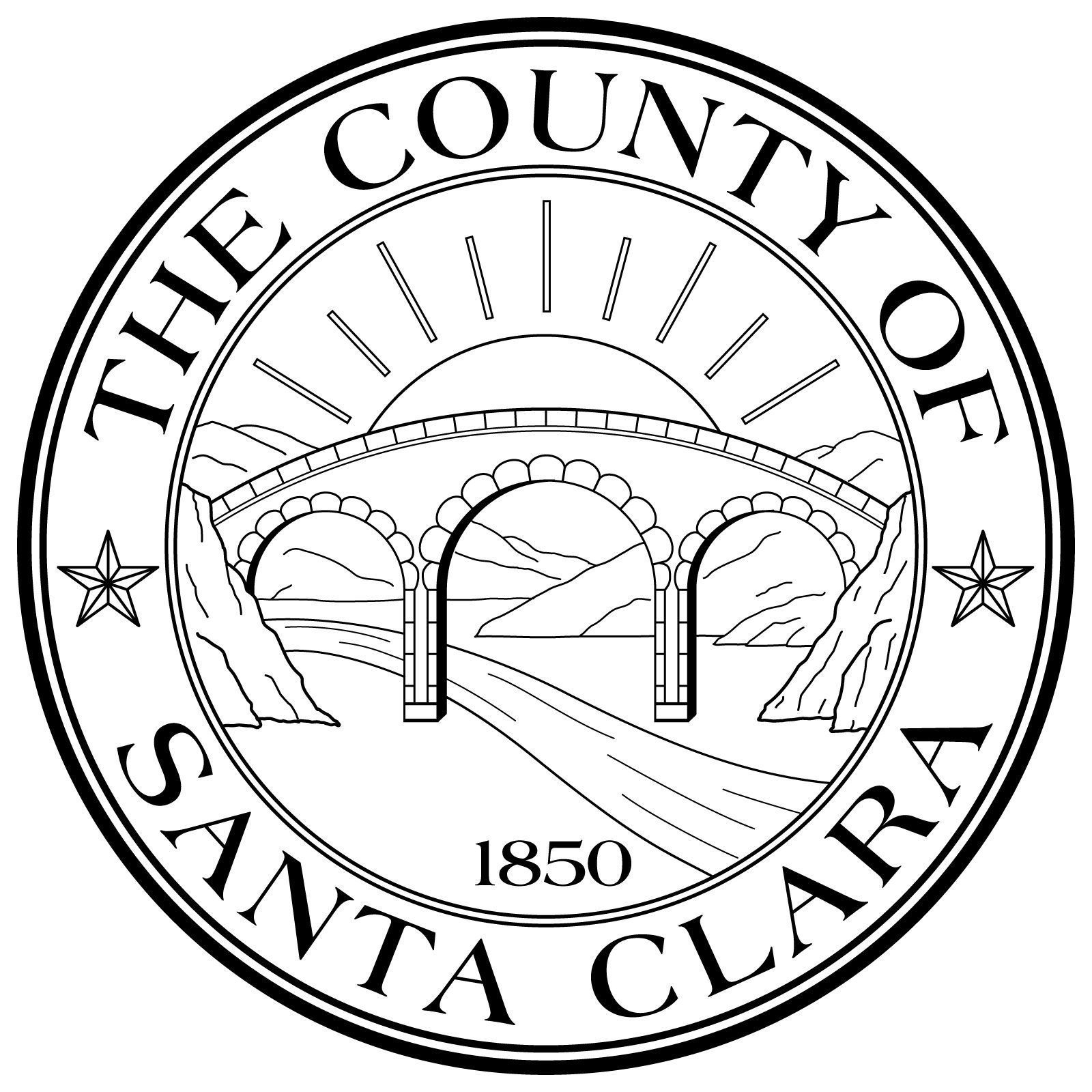County of Santa Clara Starts First-in-Nation “Universal Basic Income” Program for Young Adults Transitioning Out of Foster Care
A joint effort by the County of Santa Clara Supervisor Dave Cortese and the Gerald Huff Fund For Humanity.
Official Announcement from the Fund

SAN FRANCISCO July 28th, 2020 The Gerald Huff Fund for Humanity, a non-profit organization dedicated to furthering the understanding, acceptance, and implementation of Universal Basic Income programs to benefit all Americans today commented on the launch of Santa Clara County’s first-in-nation universal basic income program for young adults transitioning out of foster care.
Speaking at the launch event, Gisèle Huff, the president of Gerald Huff Fund for Humanity stated “It’s an honor to participate in the launch of this unique program conceived by Supervisor Dave Cortese and brought to fruition less than a year after we discussed it. I founded the fund in memory of my late son who was an ardent proponent of universal basic income, who I’m sure would have been thrilled with the speed with which the concept became reality.” More details on the program are available in the County of Santa Clara’s official press release.
As part of the Fund’s mission to promote the implementation of universal basic income programs, it was actively involved in the County’s effort to support this vulnerable population. In addition to collaborating with Supervisor Cortese on the conception of the program, the Fund contributed the preparation of an original paper by an independent researcher, Jenn Dempsey, to provide necessary data about the status of various foster youth support programs and the potential synergy of adding basic income.
Providing transitioning foster youths with a basic income is a lifeline for them and would be under any circumstances but especially so during the pandemic. The UBI program for transitioning foster youth is the first such governmental program in the country. Looking beyond today’s launch, the Fund believes that this program opens the door to similar programs in similar local entities for other marginalized populations.
Universal Basic Income, sometimes referred to as basic income or UBI, is an investment in society through an amount of income that is unconditional, universal, individual, and regularly provided. In other words, it’s an income floor below which no one is allowed to fall. It is traditionally considered to be an amount sufficient to raise everyone above the poverty line, but that is not required to meet the definition of UBI. Over the last decade, a growing body of evidence supports the idea that unconditional cash payments provided to people experiencing economic hardship or uncertainty are a potentially transformative intervention. Studies have shown that such payments can reduce poverty and increase wellbeing, positive health outcomes, and educational attainment.
“UBI is not a handout. The earth, the sun, the air, the water belong to all of us. Over the centuries, we applaud those who contributed to the improvement of the human condition and acknowledge their claim to what they have earned,” said Gisèle Huff. “But they don’t own those resources – we do, and we have to be remunerated. That’s what UBI is, our share in America’s prosperity.”
About The Gerald Huff Fund for Humanity
The Gerald Huff Fund for Humanity is a Section 501(c)3 non-profit organization that was created in 2019 to promulgate the vision of the late Gerald Huff, an ardent proponent of Universal Basic Income (UBI) as a transitional solution to the existential threat of technological unemployment. Through various programs and initiatives, the Fund supports UBI by collaborating with education and advocacy programs and individuals to further its understanding, acceptance, and implementation to benefit all Americans. Among the Fund’s current initiatives are Basic Income Today, an online information and community site dedicated to providing news and information and furthering the discussion and debate about UBI.
Media Contact:
Rick Keating
rjk@keatingco.com
917 767-2400
https://fundforhumanity.org/ On Twitter @FundforHumanity.
Official Announcement from the Santa Clara County

Pilot program offers a $1,000 monthly stipend to 24-year-olds who will no longer be eligible for foster assistance
SANTA CLARA COUNTY, CALIF.
— The first payments have been made as part of an innovative new pilot program aimed at helping young adults transition out of the Santa Clara County foster care system – the first such “Universal Basic Income” (UBI) initiative in the nation that specifically benefits this vulnerable population.
Under the program – approved by the County of Santa Clara Board of Supervisors last month – transitioning young adults who age out of the foster care system when they turn 24 will receive $1,000 a month for one year. The approved $900,000 in funding will be enough to assist 72 former foster youth and perform an in-depth evaluation of the pilot program. The County’s investment will be enhanced by support from partners such as MyPath and Excite Credit Union.
“Youth transitioning out of the Santa Clara County foster care system are desperately in need of ongoing support,” said Supervisor Dave Cortese. “Providing basic income for these young adults will better support their transition and empower them to find success, well-being and independence.”
Supervisor Cortese championed the plan after speaking with Gisèle Huff, president of the nonprofit organization the Gerald Huff Fund for Humanity. The group is dedicated to the concept of Universal Basic Income as an investment in society. The conversation between Cortese and Huff focused on UBI targeted specifically toward transitioning foster youth.
Huff said financial assistance can be especially important for vulnerable populations, such as those leaving the foster care system.
“Providing UBI to Santa Clara County’s transitioning foster kids is literally a lifeline for them at this devastating time,” Huff said. “It opens the door to making it available to all marginalized people who desperately need a floor to stand on.”
Excite Credit Union, which advocates for foster youth, has agreed to provide in-kind support to the pilot program by offering financial mentorship in coordination with MyPath to all 72 young adults who chose to utilize their services. MyPath is providing training to six financial coaches from Excite Credit Union around effective financial coaching and mentoring with young adults and will provide ongoing support for the program.
The credit union is an advocate for foster youth, said Aleta Smith, Community Relations Specialist for Excite Credit Union. Ms. Smith has a personal commitment to working with these young adults as a former foster youth herself.
Nayeli Grano, who is transitioning out of the foster care system and is not part of the UBI program, said such assistance can be life changing.
“It’s not just about financial help,” said Grano, 23. “This helps with mental health – it improves self-esteem, it makes former foster youth able to provide for themselves and provide for their kids. It means a lot more time to breathe, to actually work on starting a career and going to school. They won’t be able to even afford housing with a minimum wage job with no extra help. Sometimes that means you have to leave your dreams behind – just because we are foster kids doesn’t mean we can’t have dreams, too, and follow them.”
County Chief Operating Officer, Miguel Márquez, emphasized the importance of such a program given the current pandemic.
“The County is the safety net for our community’s most vulnerable populations, including former foster youth,” Márquez said. “These youth often don’t have support systems in place that provide stability, so the County developed this basic income pilot program to provide at least some level of consistent financial support. Through this pilot program, the County hopes to learn important lessons about how to position youth for long-term stability as they age out of the foster care system.”
County officials, community partners, and foster youth advocates held a press conference on July 27, 2020. Watch it here.
# # #
ABOUT THE COUNTY OF SANTA CLARA
The County of Santa Clara government serves a diverse, multi-cultural population of 1.9 million residents in Santa Clara County, California, making it more populous than 14 states in the U.S. The County provides essential services to its residents, including public health protection, environmental stewardship, medical services through the County of Santa Clara Health System, child and adult protection services, homelessness prevention and solutions, roads, park services, libraries, emergency response to disasters, protection of minority communities and those under threat, access to a fair criminal justice system, and many other public benefits.
Visit the County of Santa Clara at: www.sccgov.org
Media Contact: Laurel Anderson/Eric Kurhi, Office of Public Affairs, (408) 299-5119, sccpublicaffairs@ceo.sccgov.org

